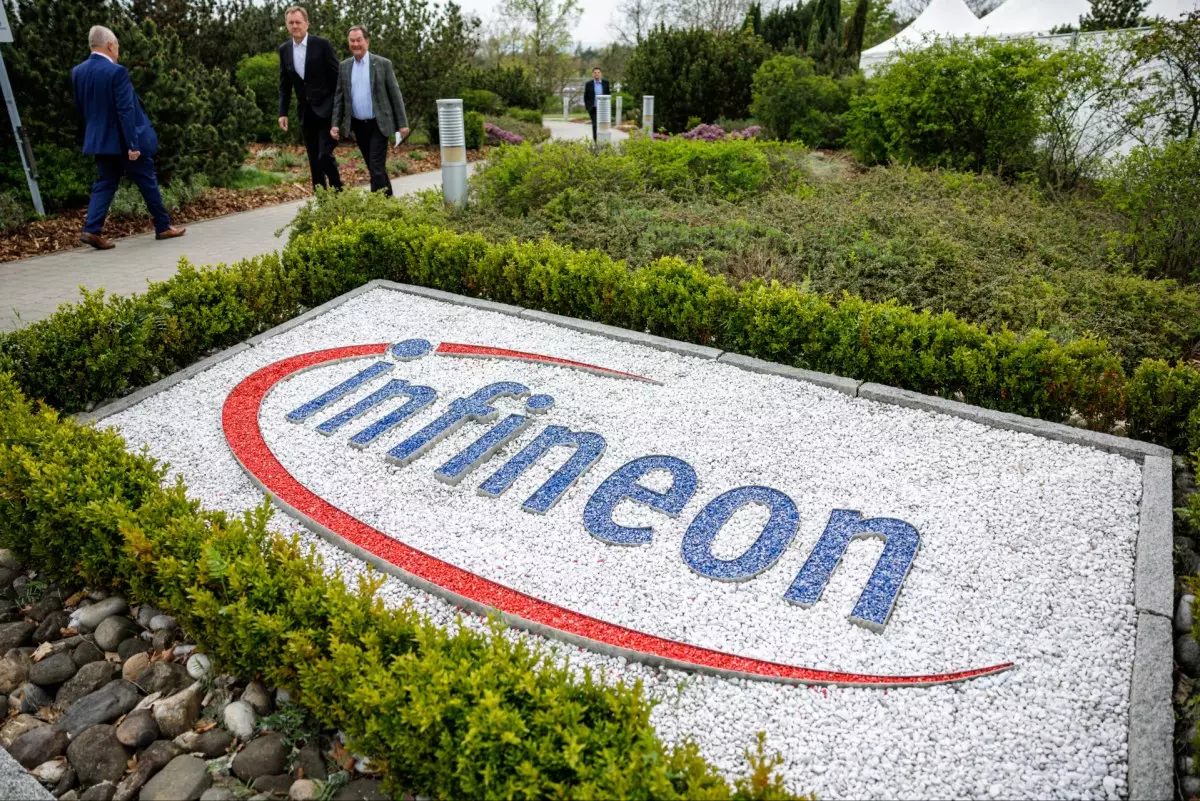In a momentous development for India’s technological landscape, Infineon Technologies, a premier semiconductor manufacturer based in Germany, has teamed up with CDIL Semiconductors, a well-established Indian chipmaker with over six decades of experience. This partnership seeks to seize the burgeoning opportunities in the South Asian nation as it embarks on a transformative journey towards electric mobility and the adoption of renewable energy. With India poised to become the most populated country on the planet, housing over 1.4 billion individuals, the need for innovative and sustainable power solutions has never been more pressing.
The ambition to elevate electric vehicle (EV) penetration from the existing 7-8% to an impressive 30%, alongside a remarkable escalation in non-fossil energy generation from 100GW to 500GW by 2030, underscores India’s determination to revolutionize its energy landscape. However, such aspirations are contingent on establishing a robust domestic ecosystem that can deliver cost-competitive EVs and battery storage solutions, thus driving consumer adoption. This alliance between Infineon and CDIL is pivotal in addressing these challenges and ensuring that manufacturers receive high-quality components at prices that allow them to remain competitive in this fast-evolving sector.
Innovation at the Heart of Collaboration
As part of their strategic collaboration, Infineon will supply specialized wafers to CDIL, which will leverage its facility located in Mohali, Punjab, for packaging and assembly. This supply chain arrangement is designed with a comprehensive focus, aiming to serve Indian consumers across various sectors, with an immediate focus on light electric vehicles such as two-wheelers and three-wheelers, as well as renewable energy products like solar inverters and energy storage systems.
The initial product line includes MOSFETs (metal-oxide-semiconductor field-effect transistors), fascinating components that fulfill the role of electronic switches, controlling the flow of electricity in a wide array of devices, from smartphones to electric vehicles. What sets this partnership apart is CDIL’s ambition to gradually enhance its production capacity by diversifying its offerings to include IGBTs (insulated-gate bipolar transistors) over time. These advanced components are designed to regulate high-voltage electricity in both electric vehicles and renewable energy installations, further enriching the Indian technology landscape.
Beyond Conventional Materials: A Step Towards the Future
Crucially, the semiconductors produced through this collaboration will utilize advanced materials such as silicon carbide and gallium nitride rather than traditional silicon. This shift marks a significant milestone, as these materials exhibit superior heat resistance and greater power density, enabling the production of safer and more efficient electronic devices. CDIL’s expertise in silicon carbide, developed over four years of dedicated research, opens doors not just for Indian markets but also has the potential for exports, showcasing India’s advancing semiconductor capabilities.
While the partnership is initially concentrated on meeting domestic demand, the possibilities for expansion are inherent. As CDIL General Manager Prithvideep Singh aptly remarked, “The wafer is like an engine. It is one critical component.” This partnership illuminates the importance of comprehensive ecosystem development, where each component seamlessly integrates into the larger technological framework, ensuring that India’s green revolution is well-supported.
The Future of Semiconductor Manufacturing in India
Interestingly, this collaboration marks Infineon’s first manufacturing footprint in India, despite the company already having a subsidiary operating within the country. With plans to engage with local markets more actively and promoting collaboration with domestic players, Infineon is not merely setting up shop; they are strategically nurturing partnerships that align with India’s long-term ambitions for becoming a global semiconductor hub.
Richard Kuncic, Infineon’s Senior Vice President, offered insight into the company’s vision for India, stating, “We believe that India is still in the more early stage of an exponential curve.” His optimism points toward an accelerated growth trajectory fueled by the overlapping trends of electrification and the increasing demand for battery storage. This vision signifies confidence not just in the Indian market but in the global trajectory towards sustainable energy solutions.
As we witness this remarkable collaboration unfold, it highlights a crucial paradigm shift in platforming green technologies. With the government’s efforts to invest billions in the semiconductor space and foster technological innovation, the partnership between Infineon and CDIL could very well serve as a model for future collaborations aimed at propelling India into the forefront of global semiconductor manufacturing and renewable energy leadership. This moment signifies more than a partnership; it epitomizes the dawning of a new era in India’s electric and renewable energy revolution.

